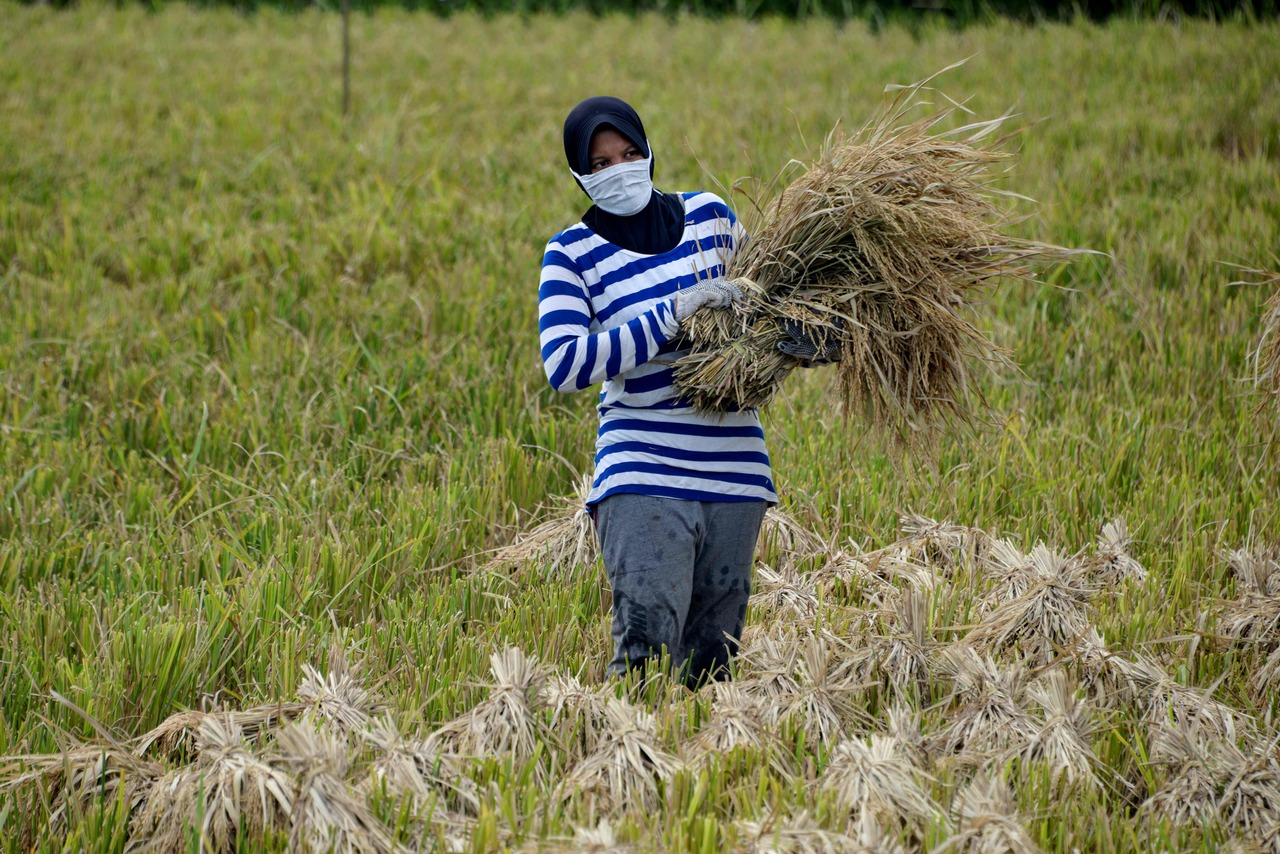Parts of Indonesia will face dry season that's drier than usual
Sign up now: Get insights on Asia's fast-moving developments

A woman working in a paddy field in Meulaboh, Aceh on Feb 9, 2020.
PHOTO: AFP
JAKARTA - Indonesia will likely face a "drier than usual" dry season in a number of regions this year, President Joko Widodo said on Tuesday (May 5), adding that measures must be taken to ensure food security and price stability.
Speaking in a virtual Cabinet meeting, Mr Joko reiterated a warning from the United Nations Food and Agriculture Organisation about a potential worldwide food crisis, whose impact the country must anticipate this year.
"We must calculate the impact of the dry season carefully because based on the prediction of the Meteorology, Climatology and Geophysics Agency (BMKG), 30 per cent of the regions entering the next season will experience worse dry season from usual," he said.
To cope with the situation, the president asked his aides to ensure water availability in key food-producing regions by retaining rainwater and filling artificial lakes and water reservoirs.
Other measures include prolonging the planting season to benefit from existing rainwater and managing stock supply thoroughly.
To this end, the government must ensure the availability of seeds and fertilisers at an affordable price, the president added.
The BMKG said in late March that Indonesia will see a "wetter" dry season this year compared to last year. About 30 per cent of season zones will be the exception to this and host a "drier from normal" dry season.
Indonesia, which is the world's largest producers of palm oil and some key commodities, was hit hard last year by land and forest fires, which were triggered by a longer-than-usual dry season, particularly in Sumatra and Kalimantan.
On April 1, the heads of FAO, World Health Organisation (WHO) and World Trade Organisation (WTO) warned of potential worldwide food shortage if authorities failed to properly manage the ongoing coronavirus crisis.
"Uncertainty about food availability can spark a wave of export restrictions, creating a shortage on the global market," stated a joint text signed by FAO chief Qu Dongyu, WHO director-general Tedros Adhanom Ghebreyesus and WTO director Roberto Azevedo.


